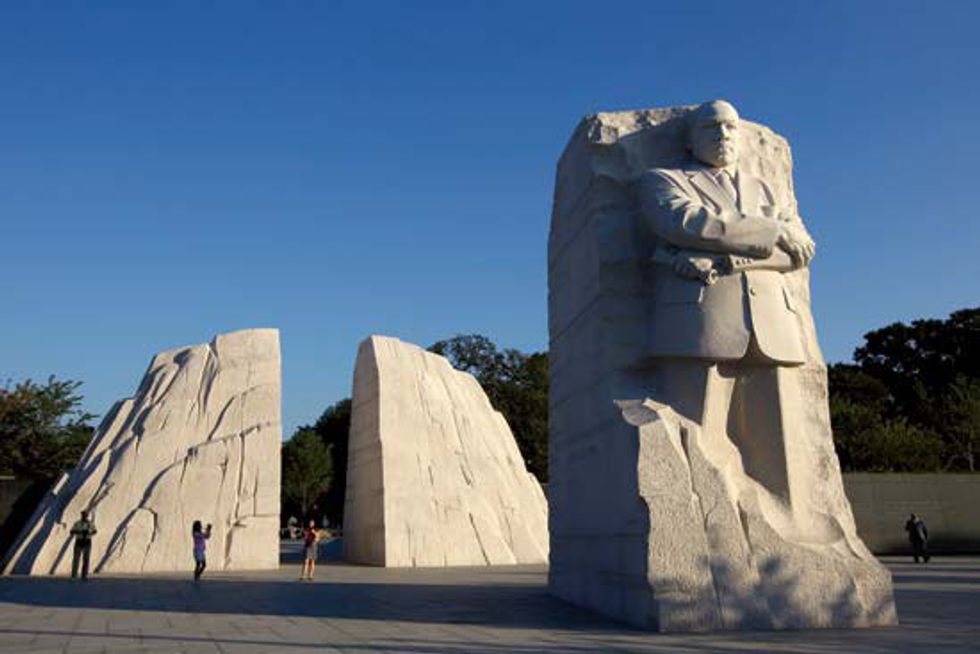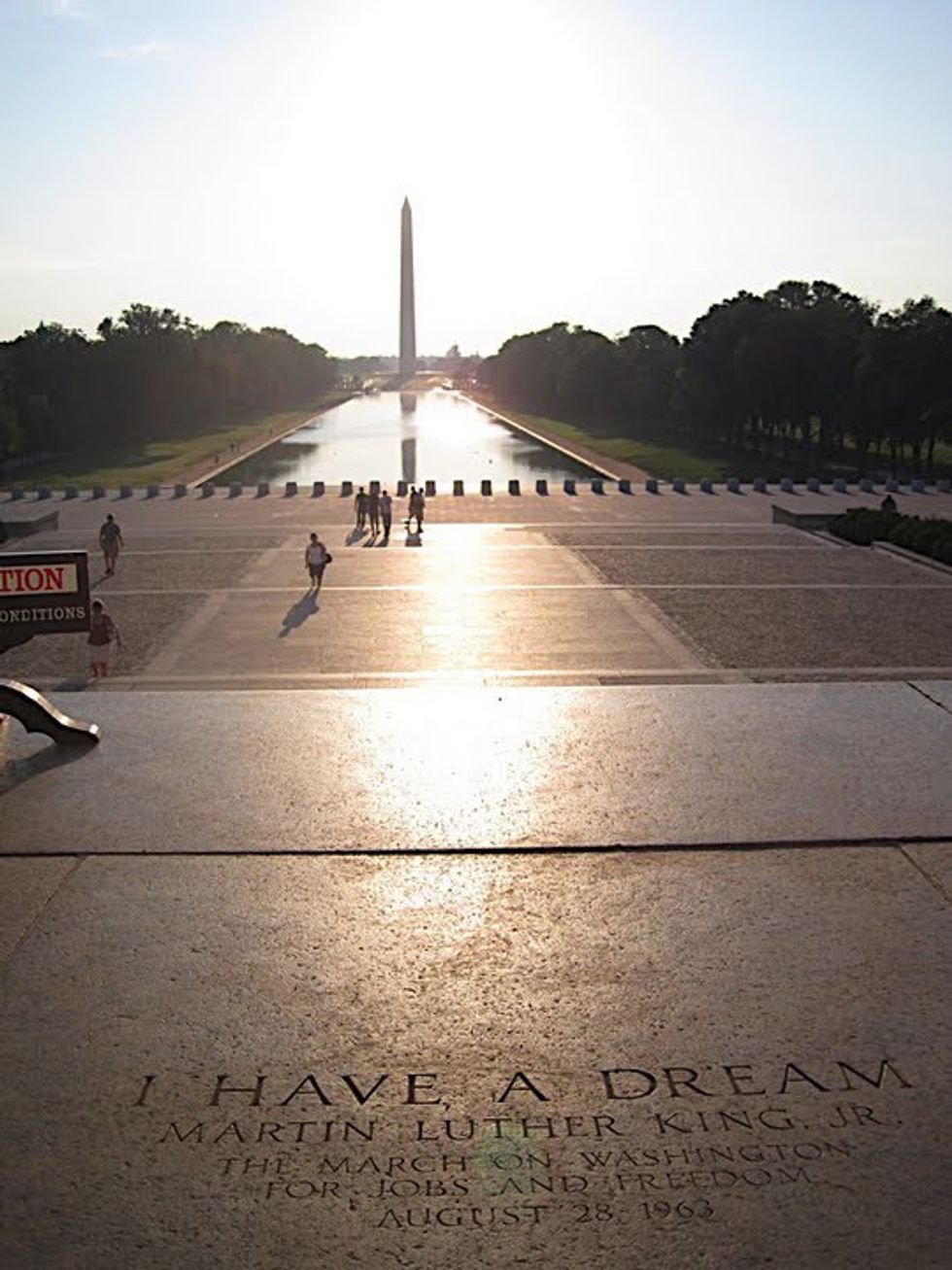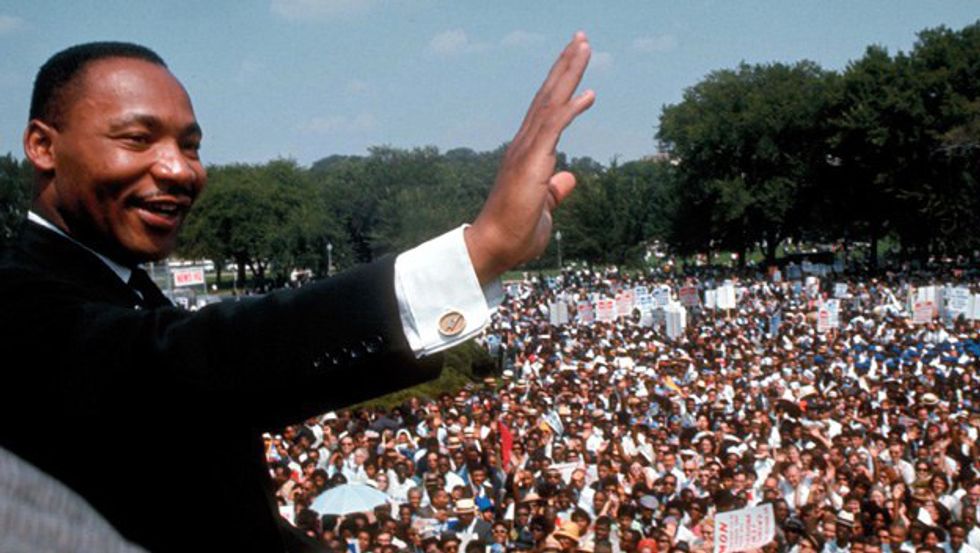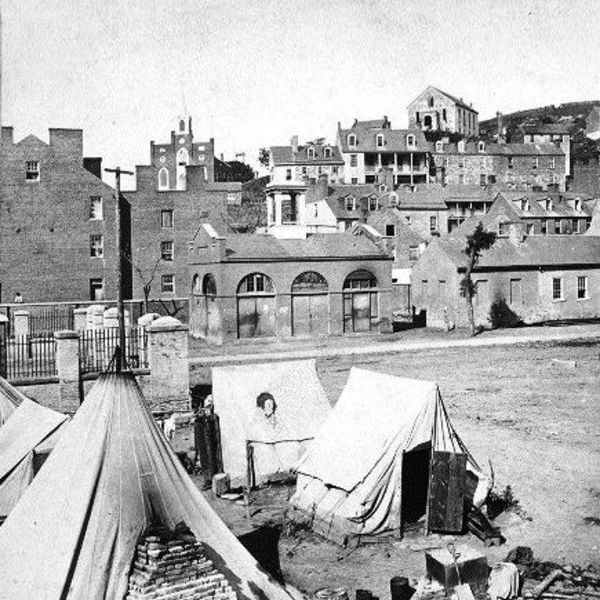When I was in elementary school, I initiated a tradition in which every Martin Luther King Jr. Day weekend, I would read a biography of the famed civil rights leader. It served to me as a reminder of the life and legacy of his work during the Civil Rights Movement, the power of organization, and the beauty of the prospect of overcoming oppression through peaceful protest. In class, we would honor him by watching Our Friend Martin, an animated educational film in which the protagonist, Miles, a black middle schooler, travels back in time and interacts with Martin Luther King to learn about segregation and the Civil Rights Movement. As a child, I felt inspired by the messages of peace that he preached, and the work he did to make his vision of a united world a reality. He inspired me to aspire towards change and something greater than myself.
When I was blessed with the opportunity to visit Washington D.C shortly after the opening of his monument, I remember my middle school self staring in awe at the grand white marble from which he emerged, and feeling a magnitude of power from reading his surrounding famous quotes.
When I saw the Lincoln Memorial, I was moved by the view from the spot on which he stood. Looking onto the Reflecting Pool and Washington Monument, and standing on the spot where Dr. King stood during his famous "I Have a Dream" speech, I tried to imagine what it would be like to have the attention of all the people during the March on Washington. I tried to imagine what it would have been like to see the speech in person. I felt very thankful in that moment for Dr. King's work and for the work that those who were there for The March on Washington for Jobs and Freedom. I remember my mom giving me a few minutes to take it all in. She later told my family, "She finally saw it come to life-- everything she grew up reading. And I think it meant a lot to her for her to see it".
As I grew older, I began to see that while King’s work has brought us far, it is not done. I have come to accept that I probably will not see a post-racial world in my lifetime. As President Obama stated in his farewell address, it may take generations to do so. However, I have no doubt in my mind that I, and the rest of my generation, have more than enough power to make significant progress, and I strongly believe that the history of this struggle is essential in moving forward. Now more than ever, we must remember the work of Dr. King and all others involved in the greatest movement of American history.
After learning so much about Dr. King, I also learned to value the movement and the many individuals who helped drive his work. While I spent my youth growing up learning about Dr. King, I never learned about the women behind the scenes who pulled the movement together. I also believe that it is important to recognize Coretta Scott King, whose daughter, Bernice King, has recalled as the "architect of this King legacy". It is also because of her efforts that we have this national holiday.
This past semester, I took Women’s Gender, and Sexuality Studies 101. My favorite part of the course was our final paper, an 8-11 page body of work in which we had the freedom to choose, research, and write about our own topic that fit under any or all categories pertaining to women, gender, or sexuality. I chose to write about the role of women in the Civil Rights Movement.
The following is the introduction paragraph of my essay:
In 1962, Fannie Lou Hamer risked her life by entering a voting booth. With the infamous literacy test and poll tax as her obstacles, Hamer was determined to oppose the system that worked against her, her parents, and all other African Americans. As a result of her taking political action, she was attacked with bullets at her home. She later became a key political activist during the Civil Rights Movement by “serving as a field secretary for SNCC [Student Nonviolent Coordinating Committee], working with voter registration, helping develop welfare programs, and circulating petitions to secure federal commodities for needy black families… The highlight of her political activism occurred when she and several others set the wheels in motion for the formation of the Mississippi Freedom Democratic Party” (Darlene Clarke Hine, Women in the Civil Rights Movement: Trailblazers and Torchbearers, 1941-1965. 1990). The publicity of Fannie Lou Hamer’s life’s work is unheard of compared to that of prominent male leaders in the Civil Rights Movement such as Dr. Martin Luther King Jr., Ralph David Abernathy, and Charles Sherrod. Women have been overlooked throughout the course of history. African American women, however, undertake an additional burden that eliminates their voices and thereby their contributions to society. This is especially prevalent in the historic political work during the Civil Rights Movement. The social roles that were inflicted upon black women impeded them from participating fully in political activism. By examining political leadership and primary sources, it is clear that there were restricting social implications towards black women leadership during the movement. Black women were empowered in acting as “bridges” between the domestic sphere and larger socio-political organizations. Civil rights work helped empower individual women and communities at large. Unfortunately, history has allowed for the omission of the role that black women had in the Civil Rights Movement.
Writing this paper meant a lot to me as a woman of color, particularly because the roles of women of color in large movements and historical events are frequently undermined. Though a single semester, a single paper does not give justice to these women and to the entirety of the Civil Rights Movement, I am looking towards taking on new traditions on Martin Luther King Jr. Day. It is no longer enough for me to read a book a year. My education is a non-stop, lifelong process in which I can use my knowledge to educate myself and others, and take action to bring about real change. The more I learn, the more I can be a voice and shed light on the things I believe and want to change.
I want to emphasize that now more than ever we need to remember the ideals that Dr. King preached about. Now more than ever we must continue our relentless pursuit of justice and equality for all. Let us not remember solely the man, but the movement he stood for, and the motivation he brought and continues to bring to the American people.
I wish you all a wonderful Martin Luther King Jr. Day. In his words let us always remember, "Darkness cannot drive out darkness; only light can do that. Hate cannot drive out hate; only love can do that."
























